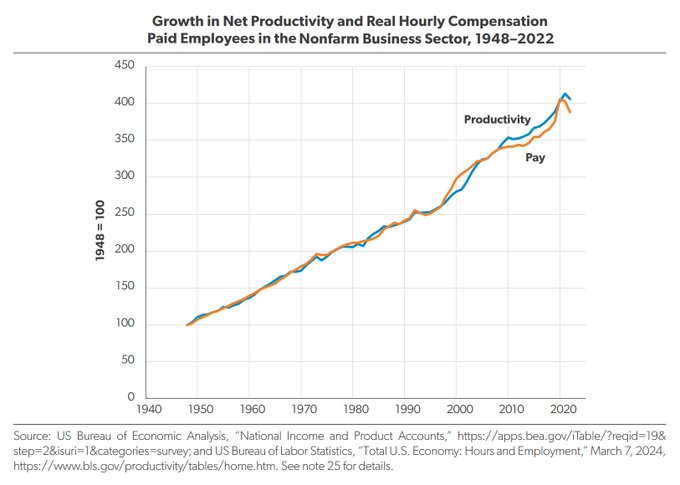
"What happened in 1971?"
Nothing, that's just a common year people choose to mismeasure productivity and pay series from🧵

Using nonfinancial corporate sector productivity and wages, we see the same picture indicating no stark divergence in 1971.
Read the full thread and shoutouts here: https://x.com/cremieuxrecueil/status/1846740202179486061